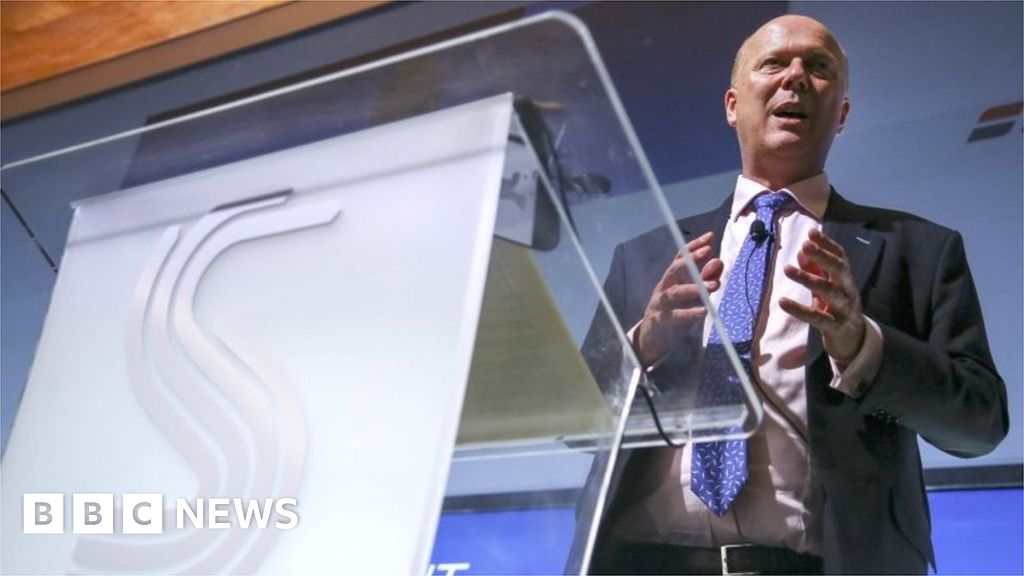
"Some regard private enterprise as a predatory tiger to be shot, others look on it as a cow to be milked, only a handful see it for what it really is, the strong and willing horse that pulls the whole cart along."
There are a few business leaders who would quite like to repeat the words of Sir Winston Churchill about the role, as they see it, of business in Britain - if they ever got close enough to a Cabinet minister.
Such business leaders see themselves as the willing cart horse, given the extra load of preparing for departure from the European Union, but nevertheless constantly swatted in the face by politicians who complain that they are neighing too loudly or not realising the opportunities obvious in the green fields over the hill.
As the deadline approaches for agreeing a deal with the EU over Brexit, sectors which rely on the complex international supply chains made possible by Britain's membership of the single market and the customs union are becoming louder as their private fears "no deal" will be the ultimate outcome solidify.
For those sectors - such as car making - the efficiency of the "just in time" model of production faces an existential threat if there are any delays at border crossing between Britain and the EU.
And, out of the customs union and the single market, many businesses say it is at present difficult to see how "friction-free" trade can be maintained.
I was struck at yesterday's summit held by the car makers trade body, the Society of Motor Manufacturers and Traders, just how hostile some in the audience were to Chris Grayling, the transport secretary, who said in a speech that the government was pushing for the best and most "mutually beneficial" deal possible with the EU.
"We are confident that we will secure a deal that minimises disruption to your businesses," Mr Grayling said.
John Neil, the chief executive of Unipart, one of Britain's largest automotive parts suppliers, questioned Mr Grayling from the floor, saying the government was sending "mixed messages" and that Cabinet ministers apparently responding with an expletive when asked about concerns raised over Brexit, was not exactly helpful.
As the transport secretary attempted to respond to another delegate demanding more clarity, he was interrupted with demands to "answer the question".
It came close to heckling.
This goes well beyond any allegations of "Project Fear Mark II" and to the heart of the fundamental difference between politics and business over the approach to Brexit.
Politicians may expend many warm words about efforts to secure the best deal with the EU and point to the progress so far made.
But to businesses, who deal in matters of legality not podium speeches, nothing concrete, nothing signed, has yet been delivered.
And as the UK head of BMW told me yesterday, unless that legal certainty is clear by September, then firms like his will have to start spending on the infrastructure necessary for border checks between the EU and Britain.
That means large warehouses to hold supplies, lorry parks at ports and new computer systems to deal with customs requirements.
All that costs money, Dr Ian Robertson told me, and ultimately that will affect the competitiveness of the UK motor sector and could lead to increased prices for cars.
That is the "evidence" Greg Clark, the business secretary, referred to at the Times CEO Summit yesterday.
Comments in deliberately sharp contrast to the expletive attributed to the foreign secretary, Boris Johnson, who, when asked in Parliament if he used strong language, replied that no-one could doubt the government's "passionate support" for business.
'Passionate support'
Even, he continued, if he may have expressed rather more "sceptical" opinions about those who sought to "speak for business" - in this case probably the CBI, the business trade group not thought to be high on Mr Johnson Christmas card list.
Businesses which fear the consequences of a disruptive Brexit - and of course that it is not all businesses - are not sure of the government's "passionate support" for them.
They want legal clarity so that they can prepare for the complicated changes that are likely to be necessary.
That clarity is some way off, even under the best case scenarios about how negotiations with the EU will progress before Britain officially leaves the EU at the end of March next year.
And until then, the scratchy tone between the cart horse of businesses and an irritable government will become increasingly evident.
Read again Politicians and business – Brexit's grumpy bedfellows : https://ift.tt/2KpYYMZBagikan Berita Ini















0 Response to "Politicians and business Brexit's grumpy bedfellows"
Post a Comment